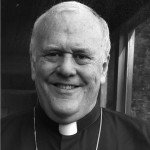A few days ago in Dallas, hundreds of shots rang out targeting police officers. Before the shooter was stopped, five Dallas police officers were dead, six other officers wounded, and some civilians had been shot as well. President Obama remains mystified as to the motives of the shooter, though always quick to assign the most dark motives to conservatives. In this case, he has been unable to accept the words of the shooter who claimed he wanted to “shoot white people, especially white cops.” That actually seems fairly clear.
While many reports seem to emphasize racial division, the facts reveal some more powerful truths. One cannot escape the fact that there are some people in the world who are–in the words of C.S.Lewis, “as crazy as a poached egg.” The poached eggs of the world are going to do crazy things. They will do them with guns, cars, bombs, knives, poison, planes, or garden implements. No manner of round up of pointy things or things that go bang can ever eliminate threats. There is always something else dangerous to use. It is, however, helpful to try to identify those who are poached and, where possible, seek to limit the damage they can do.
In the case of the Dallas shooter (whom I refuse to name), there were some clues to his eccentricities. In addition to a vast assortment of guns and bombs, and back yard maneuvers, he made some of his military colleagues nervous with his apparent passion for ladies’ undergarments. That may have led to his separation from the army. In any case, he was an angry, unhinged guy who got caught up in hatred and the easy social narrative of those say that the police are always wrong. Of course it is true that there are unrighteous acts by some police officers. Most, however, are dedicated and principled. In the heated environment of recent incidents where black citizens were shot by police, there has been no shortage of those rushing to judgment. Every use of force by police should be thoroughly investigated in an impartial way. If there is misconduct, it needs to be identified and prosecuted. There is no room to overlook abuse of authority, neither is there room to assign ill motives automatically. The fact is that every incident is filled with facts. Facts are stubborn things. They either are or are not. Misconduct needs to be named and pursued no matter who is identified.
In the midst of the swirling anguish, anger, and pain of the Dallas shootings, the facts must be discovered and revealed. Follow-up actions must be discerned and undertaken. But all the facts do not revolve around misconduct.
While the hail of bullets was flying, Shetamia Taylor, an African American mother, was at the Dallas demonstration with her young son. A demonstration which, up until the shooting started, was peaceful. Hit in the leg by a bullet, Ms. Taylor grabbed her son and told a nearby officer that she had been hit. Unable to move away from the field of fire, Ms. Taylor said that “with utter disregard for their own lives,” an officer laid his body over her and her son. Seeing that the shooting continued, two more officers came close as well. One laid his body to cover her head. Another laid down over her legs and her son. Beside them another officer was shot and killed. She said, “these heroes” disregarded their own safety to protect her. A black woman wounded by a deranged gunman given protection by three white officers who were willing to give their own lives for someone they did not know. Someone who had been a demonstrator, protesting police abuse. Nothing was clear as the bullets flew and officers fell other than the fact that a civilian was in danger, and these principled officers were willing to offer themselves for the ultimate sacrifice to protect someone they possibly disagreed with.
The facts are that this is the new normal. Sure, there have been incidents of police misconduct before. Where that happens, the facts need to be investigated and pursued-prosecuted where appropriate. We also need to recognize how many millions of interactions–even cross racial interactions-take place without incident. It is foolish and wrong to describe all police interactions as biased. It just isn’t so. How, though, do we process problematic situations? The pattern can be applied to most incidents, not just ones involving police. Any conflict can be addressed. Fact finding and appropriate action is not only possible, it is what righteousness requires.
The day of the shooting was a day that I marked not only with sadness about the violence, but it was also significant for other reasons. It was the anniversary of the day I graduated from Air Force Pilot Training forty-five years ago. (Don’t go jumping to conclusions too quickly about how ancient that makes me. I’ve been told I was the youngest person to earn their wings in Air Force history since World War Two.) Admittedly, it was a long time ago, but there were great things I learned about problem solving as a pilot.
The first things one must do in assessing an emergency (or a “situation”) while flying a plane are:
- Maintain aircraft control.
- Analyze the situation
- Take proper action
When something comes up, it is not good enough to suspect what is going on, it is critically important to be sure. It is also vitally important to maintain aircraft control. It is tragic when that is not done and people perish addressing a situation in or with the plane.
In aircraft, like in life, problems fall into two categories. Horrible problems and not horrible problems. There are two different approaches to the issue depending on whether the problem is horrible or not.
If it is a “horrible problem,” pilots call that a “Bold Face Emergency.” It is so named because the checklists to handle life threatening problems are written in Bold Print. Bold Face emergency procedures must be learned verbatim. Any deviation in wording, punctuation, or even spelling, is punished by getting a failing grade. Before, during, or after a flight, a flight examiner can ask what the procedures are for one of the Bold Face procedures. Any mistake gets an “F.”
Other issues that are less critical only require a 70% grade to pass. Those situations can be addressed more leisurely and not quite as critically. Naturally, it is very bad to misdiagnose a situation as non-critical when it actually is critical. It is equally foolish to treat something peripheral as though it deals with essentials.
In the Anglican Communion, we are dealing with many problems. Some are in the category of horrific, and deal with issues of salvation. Other issues are more peripheral, and their pursuit does not result in a loss of salvation. Scripture is clear that there are some things which are so egregious that their pursuit separates us from the redeeming love of Christ. When those things come up, we need to treat them like the Bold Face emergencies that they are, and say, “No!” To do less is not loving. It is not loving to offer to bless that which God says should be redeemed.
Likewise, decisions and actions that overturn Scriptural authority are Bold Face emergencies as well and should be treated as such, also with a “No!”
Other things on which there is Biblical silence or lack of clarity, need to be treated with more flexibility. Others who have opinions about those things that differ from me might be right and I might be very wrong. I need to approach those situations with a great deal of humility and a lack of stridency.
In addition, much like the absolute heroism in the midst of the Dallas shootings, we need to identify heroism from those around us, even those with whom we disagree. We need to celebrate their nobility and appreciate their kindness whenever it appears, even when it complicates disagreements and undermines our arguments. Just because it is not helpful to my narrative, truth can’t be ignored. For example, everything about same-sex relationships is not bad. There are noble, righteous, and good things found in them. Nobility and righteousness are never found in sexual expression in same sex relations. We can affirm the nobility of friendships, creativity, loyalty, and a host of other things. What we can’t do is overlook that which God says reaps an ill harvest. We have to seek and celebrate Biblical truth and righteousness, and lovingly but clearly address that which is out of order. We need to do that in in the midst of violence, bigotry, and sin. A hard and high calling, but that is the calling we have.
The Rt. Rev. Bill Atwood is Bishop of the ACNA International Diocese and an American Anglican Council contributing author.



